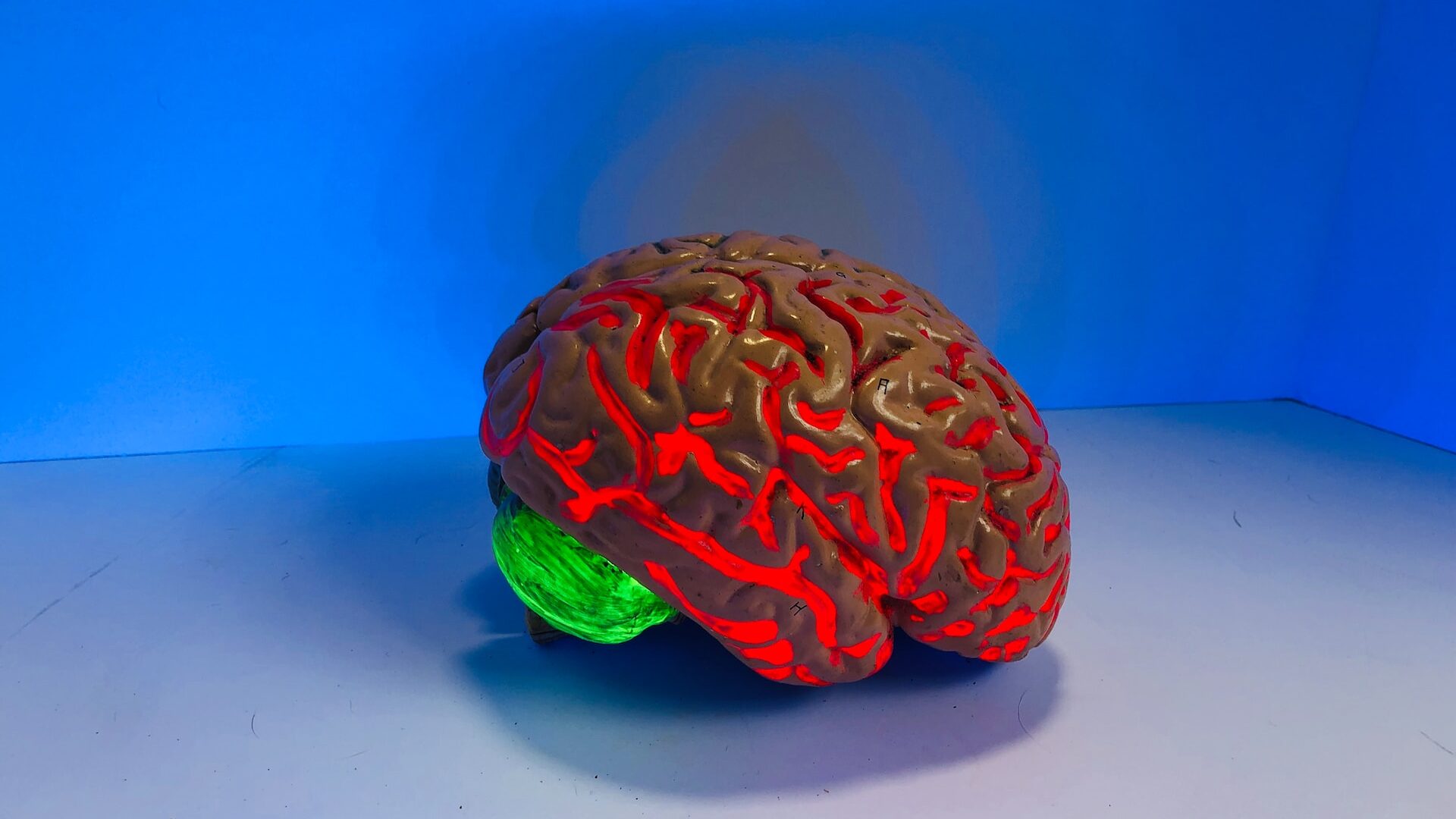Bacteria are a group of microorganisms found anywhere: in water, in the air, in food. Due to their microscopic size, they are easily transmitted and can enter the human body unnoticed. There are lots of different types of bacteria on Earth. They can be divided by shape into the following three groups: rod-shaped, spherical, and spiral bacteria.
Helicobacter pylori belongs to the spiral bacteria group. This type of bacteria is most often found in water. When it enters the human body, Helicobacter pylori inhabits the gastric mucosa![]() . The bacterium can survive in unfavorable conditions, which is the stomach's acidic environment. H. pylori infection most often occurs through the gastrointestinal tract, specifically – through the mouth.
. The bacterium can survive in unfavorable conditions, which is the stomach's acidic environment. H. pylori infection most often occurs through the gastrointestinal tract, specifically – through the mouth.

Helicobacter pylori is harmful to the human body and causes stomach problems. At one end of the bacteria are threads that allow it to penetrate the mucus layer covering the epithelium of the stomach. The bacterium is therefore adapted to live in the environment of the human stomach and causes the following changes in it:
H. pylori bacteria produce enzymes that break down urea into ammonia![]() . This contributes to changing the pH of the stomach from acidic to alkaline. This allows the bacteria to survive in the stomach environment. But for the human body, it is harmful.
. This contributes to changing the pH of the stomach from acidic to alkaline. This allows the bacteria to survive in the stomach environment. But for the human body, it is harmful.
The change in pH and the production of toxins by the bacteria affect the formation of inflammatory lesions in the gastric mucosa. When the human body detects the bacteria, they react immunologically, resulting in unpleasant discomforts indicative of infection.
H.pylori infection is higher in countries with lower socioeconomic status. The main factor that contributes to the condition is the lack of hygiene. Most often, Helicobacter pylori infection occurs in childhood. But it is possible to become infected with the bacterium at any age. Infection with this type of bacteria can occur in the following ways:
Helicobacter pylori infection occurs when the bacteria somehow come into contact with the mouth. Once the bacterium enters the mouth, it can quickly join the stomach via the digestive route. Then the H.pylori bacterium can reside in the stomach and multiply even for many years. Sometimes the infection does not cause any symptoms or health risks, as the bacterium does not reproduce to a degree that would affect the pH of the stomach.

In many cases, Helicobacter pylori infection is asymptomatic. Then the pathogens can develop for years, and only a more severe condition will arouse vigilance when the bacterium causes inflammatory changes in the gastric mucosa. However, it is possible to see some symptoms of Helicobacter pylori infection, especially when there is an immune response. Symptoms of Helicobacter pylori infection include the following:
Helicobacter pylori infection can cause many unpleasant gastrointestinal symptoms. Early symptoms may seem harmless. The condition is often diagnosed after the bacterium has led to chronic inflammation. Also, the first sign is often stomach ulcers![]() , which manifest as abdominal pain after eating, a feeling of fullness, and bloating.
, which manifest as abdominal pain after eating, a feeling of fullness, and bloating.
Observing the above symptoms in yourself is worth consulting a doctor, who will order the appropriate diagnostic tests. If left untreated, inflammation can lead to complications, such as stomach cancer, which is a serious health and life-threatening condition.
There are various methods of diagnosing the presence of H.pylori bacteria in the body. In mild cases, non-invasive tests are sufficient. However, if the bacterium has caused too much damage to the body, these changes should be tested to determine the appropriate treatment. Tests recommended for suspected Helicobacter pylori infection include:
Serological test – involve a simple blood draw and are often sufficient to confirm Helicobacter pylori infection. But they are not used in assessing treatment effects because antibodies to the bacteria persist in the blood for a very long time after treatment. These are commonly available tests that can be done first.
Urine breath test – another non-invasive test that accurately diagnoses Helicobacter pylori infection. It involves taking a sample of exhaled air and detecting active disease. It is also used to assess the effects of treatment. However, the urea breath test may not be appropriate in some conditions. For example, the test result may be falsified in people with recent or active gastric or esophageal bleeding.
Stool antigen test – it has a high predictive value and is often used to diagnose Helicobacter pylori infection. It involves taking a stool sample and analyzing it under laboratory conditions. A simple test for the presence of Helicobacter pylori antigen in the stool can confirm infection with the bacterium and monitor the effectiveness of therapy. The test is painless, but taking a stool sample exposes some patients to discomfort. The test can also show false results when done right after antibiotic therapy.
Gastroscopy examination – this test is invasive and causes discomfort but has high predictive value. It involves inserting an endoscope into the esophagus and the stomach and duodenum. With this test, a fragment of the mucosa can be taken. The gastroscopic examination should be performed for alarming symptoms![]() , such as weight loss or gastrointestinal bleeding.
, such as weight loss or gastrointestinal bleeding.

Helicobacter pylori is an infectious disease that requires appropriate treatment. There are various treatments for H. pylori infection. First of all, pharmacotherapy, including antibiotics, is being applied. In the process of treating Helicobacter pylori infection is used:
Therapy usually lasts about 10-14 days. If the bacteria resist a particular antibiotic, it should be replaced with another. Properly conducted treatment can eliminate Helicobacter pylori from the stomach. However, it is possible that the problem will return when the bacteria are prevalent in the stomach environment.
It is worth noting that failure to follow the doctor's instructions can reduce the success of the therapy. To assess the effectiveness of the treatment, the patient should take a test for the bacteria at least four weeks after the end of the treatment.
The vast majority of people infected with H. pylori do not develop significant clinical complications. However, untreated Helicobacter pylori infection can lead to complications and the development of diseases. First of all, H. pylori infection contributes to the development of three severe conditions of the upper gastrointestinal tract:
The inflammation caused by H. pylori greatly increases the risk of ulcers![]() both humans and animals. Ulcers are cavities in the mucosa. Ulcer disease develops due to an imbalance between mucosal immunity and the amount of ulcer-causing substances. Too much acid reaching the duodenum or stomach damages its mucosa, causing ulcers.
both humans and animals. Ulcers are cavities in the mucosa. Ulcer disease develops due to an imbalance between mucosal immunity and the amount of ulcer-causing substances. Too much acid reaching the duodenum or stomach damages its mucosa, causing ulcers.
The characteristic symptom of gastric and duodenal ulcers is pain in the epigastrium. Nausea and vomiting may also occur. Constipation and problems with bowel movements are common symptoms. It can also happen that peptic ulcer disease is asymptomatic.
The primary test performed to establish the diagnosis of peptic ulcer disease is gastroscopy. It allows assessment of the upper gastrointestinal tract. Certain risk factors increase the likelihood that you will develop ulcer symptoms. These are primarily unhealthy lifestyles, i.e., alcohol abuse, smoking, and an improper diet.
Stomach cancer![]() is one of the more common malignancies. The accompanying symptoms do not indicate a specific disease, so stomach cancer is usually diagnosed at an advanced stage. The condition at first gives uncharacteristic symptoms like abdominal pain and weight loss. Indigestion and nausea or vomiting may occur. As gastric cancer advances, gastrointestinal bleeding may occur.
is one of the more common malignancies. The accompanying symptoms do not indicate a specific disease, so stomach cancer is usually diagnosed at an advanced stage. The condition at first gives uncharacteristic symptoms like abdominal pain and weight loss. Indigestion and nausea or vomiting may occur. As gastric cancer advances, gastrointestinal bleeding may occur.
These are symptoms typical of various diseases related to the gastrointestinal tract. The syndrome of symptoms may resemble those of stomach ulcers. Therefore, if signals are noticed, it is necessary to perform tests to identify the problem. Gastroscopy is considered the best method for diagnosing stomach cancer. Other ancillary tests can also be performed.
Stomach cancer is a severe disease that can lead to death. The primary treatment for gastric cancer is radical surgical resection of all tumor foci. Once the cancer is removed, it can cure the patient completely.
This type of malignant tumor occurs when there is a pathological proliferation of lymphoid cells. Symptoms of MALT lymphoma![]() depend on the organ on which the cancer is located. If it is located in the stomach, it manifests itself through typical gastrointestinal symptoms.
depend on the organ on which the cancer is located. If it is located in the stomach, it manifests itself through typical gastrointestinal symptoms.
Indigestion, vomiting, and weight loss – are specific symptoms of gastrointestinal diseases. Other symptoms include dark stools and pale skin. MALT lymphoma can be diagnosed after appropriate testing. The treatment of MALT lymphoma depends on its location, as well as the stage of the disease.
When it is located on the stomach and is caused by the H Pylori bacterium – in that case, treatment consists of administering solid antibiotics to eradicate the bacterium and agents to increase the pH of the stomach. If treatment is unsuccessful or the cancer recurs, chemotherapy or radiation therapy is necessary.
The H. Pylori bacterium causes lesions in the stomach, which has been confirmed. But a link between the bacterium and lesions outside the gastrointestinal tract has also been noted. Thus, Helicobacter pylori can cause not only diseases related to the gastrointestinal tract but also affects other conditions. These include, among others:
Anemia – iron deficiency is the most common result of diseases related to the digestive system. The unpleasant symptoms of H. pylori infection may contribute to insufficient iron supply. Vomiting and diarrhea, in particular, have an impact, as well as decreased appetite and aversion to eating caused by gastrointestinal discomfort. Also, the inflammation that the bacterium causes significantly impairs the body's iron absorption, leading to anemia.
Vitamin B12 deficiency – another component that may be lacking through digestive diseases is vitamin B12. Gastritis associated with H. pylori infection causes general malabsorption of food. Therefore, patients infected with this bacteria often have vitamin and nutrient deficiencies. Healthy people usually have no problems absorbing vitamin B12, as it is found in many foods. However, a poor diet can lead to a deficiency.
Skin problems – The bacterium can be responsible for intestinal symptoms, including the skin. It turns out that Helicobacter pylori, in some cases, can cause skin symptoms of infection. Lesions may appear on the skin in the form of rashes. H. pylori is also likely to increase the risk of developing rosacea and chronic urticaria.
Helicobacter pylori is associated with gastrointestinal diseases, but more studies show a link between H. pylori and neurological symptoms. In recent years, researchers have begun to note that H. pylori infection may be involved in the development of various neurological disorders![]() , such as:
, such as:
Currently, the mechanism of action is not yet fully understood. But evidence is mounting that H. pylori can induce inflammatory processes that lead to neuronal damage.
In addition, the bacterium can affect the nervous system by acting on the gut-brain axis![]() . The gut-brain axis is a neuron network connecting the central nervous system to the gastrointestinal tract. Changes in the gastrointestinal tract can therefore affect behavioral disorders and mental health.
. The gut-brain axis is a neuron network connecting the central nervous system to the gastrointestinal tract. Changes in the gastrointestinal tract can therefore affect behavioral disorders and mental health.
Another link between H.pylori and neurological diseases is the immune response caused by the bacterium, which leads the body to attack its cells, including neurons.

Neurological symptoms associated with H. pylori infection can be varied. In recent years, more studies have pointed to a possible link between H. pylori infection and neurological symptoms, such as motor, cognitive and mood disorders. Neurological symptoms of Helicobacter pylori infection include:
The bacterium can cause cognitive dysfunction (such as problems with memory, concentration) and motor dysfunction (such as tremors, muscle stiffness). In addition, mood disorders, such as depressive and anxiety states, as well as sleep problems, can occur.
Nervous system dysfunctions, including Alzheimer's and Parkinson's disease, develop as a result of the simultaneous action of many factors. Long-term infection with Helicobacter pylori could significantly affect the development of these conditions. However, it is necessary to deepen the topic with further studies to confirm this impact.
The Helicobacter pylori bacterium does very well in the acidic environment of gastric juice. Transmitted into the human body most often by oral route, it nests in the stomach, causing lesions. Usually, infection with this bacterium is entirely asymptomatic, but some patients develop annoying symptoms such as nausea or epigastric pain.
Helicobacter pylori bacteria change the pH of the stomach to alkaline and produce toxins that negatively affect the mucosa of this organ. To diagnose the infection, the specialist orders specific tests. A gastroscopic examination will be necessary in severe cases. Pharmacological methods based on antibiotics and other drugs are used to treat Helicobacter pylori infections.
To support antibiotic therapy, following the general rules of healthy eating is advisable. A complete cure for the condition is possible, but recurrences sometimes occur. Untreated Helicobacter pylori infection rarely leads to disease but, in some cases, can even contribute to cancer.
Inflammation caused by the bacterium can also cause vitamin deficiencies and other nutrients. The H. pylori bacterium may also be linked to neurological changes, but more research is needed to confirm this.
To avoid infection with H. pylori, it is advisable to observe hygiene and cleanliness first. It would help if you always wash your hands before eating. This significantly reduces the risk of H. pylori infection.